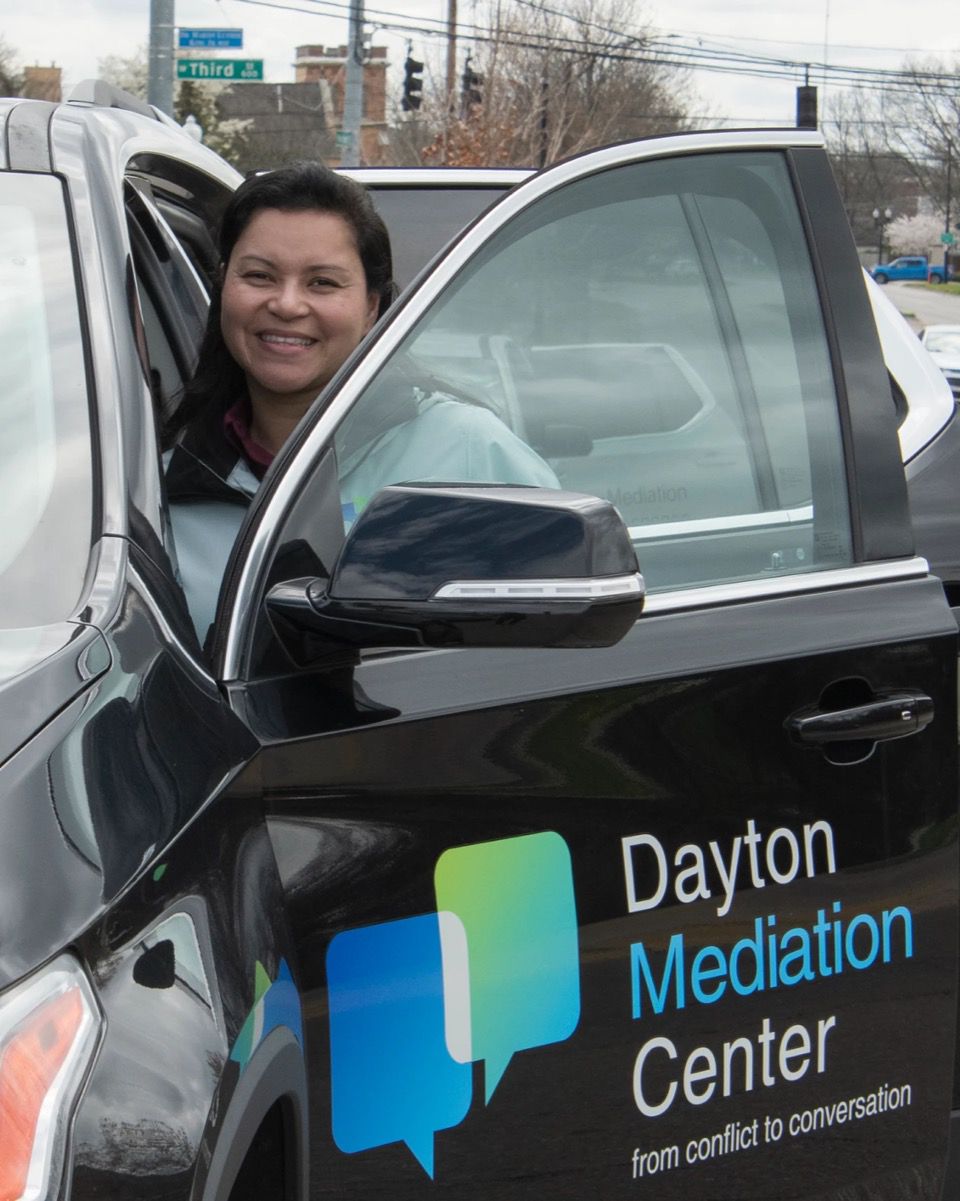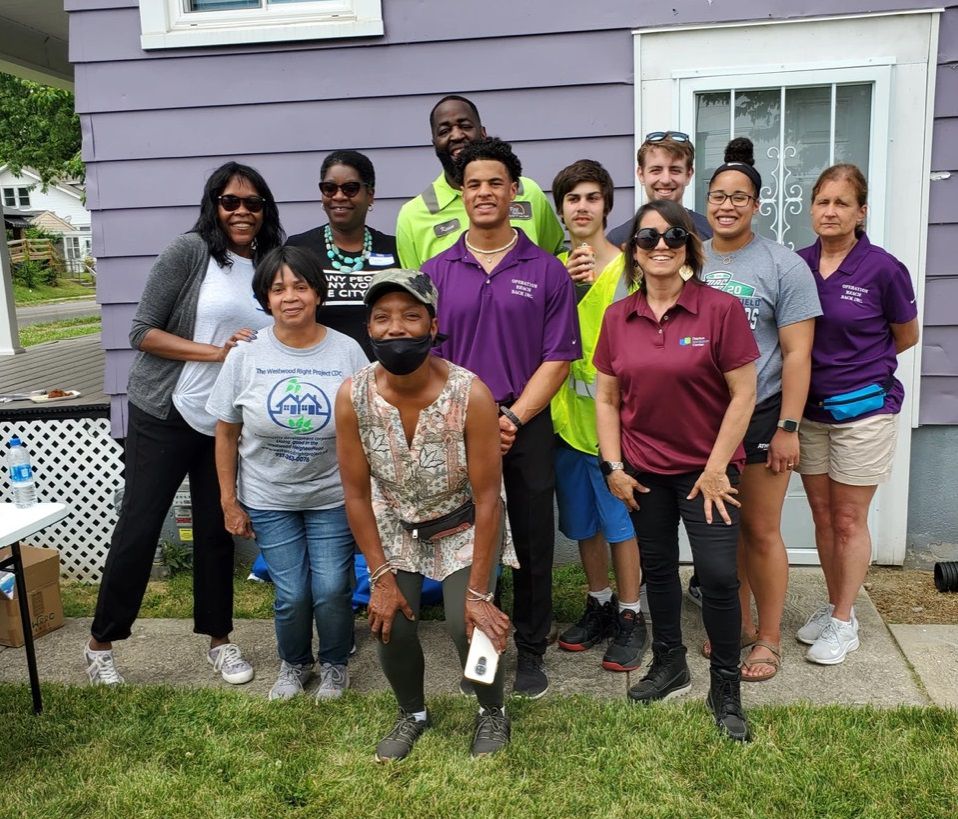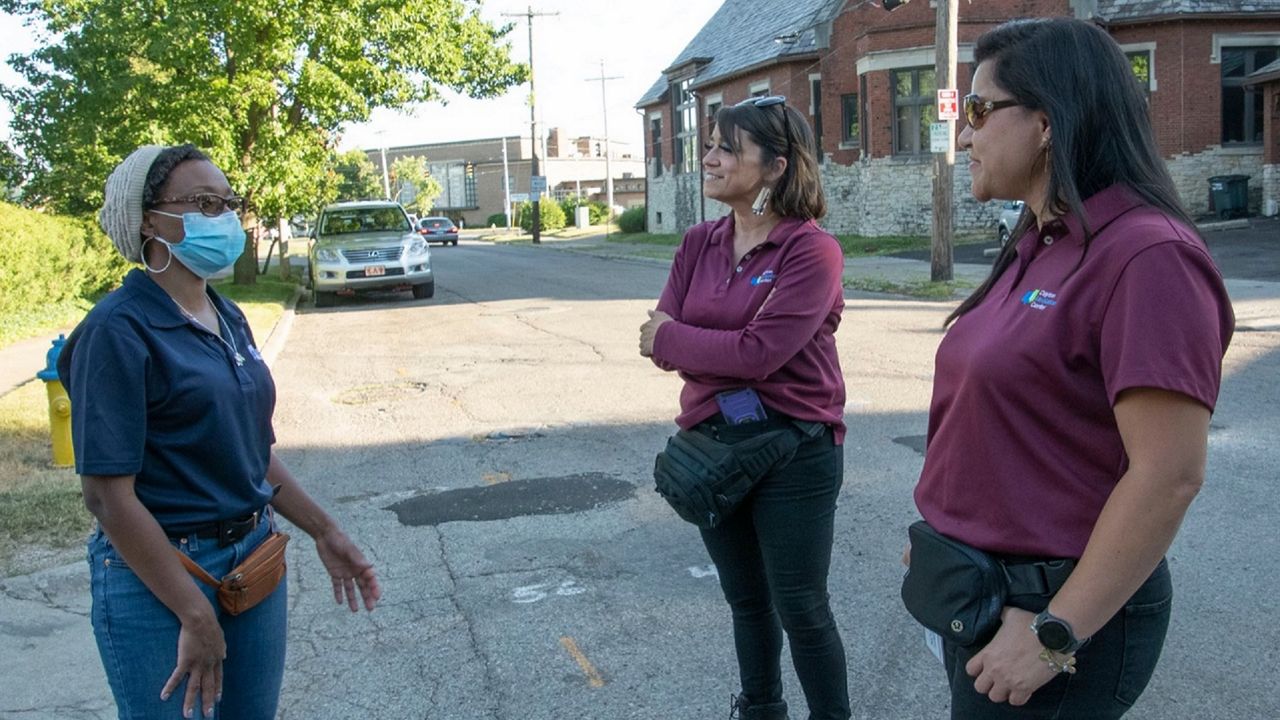DAYTON, Ohio — When the City of Dayton launched its Mediation Response Unit this spring, the goal was twofold: Cut down on unnecessary police interventions and provide residents with direct and immediate access to services they need.
Now, several months into the pilot program, the city has dispatched the MRU — a small team of non-police officers trained in conflict mediation — to deal with a variety of nonviolent calls for service.
What You Need To Know
- Dayton's Mediation Response Unit sends conflict mediators, not police, to nonviolent 911 calls
- The team has responded to more than 400 calls in the past three months
- The initiative stems from Dayton's resident-led police reform movement started in mid-2020
- City leaders see the program expanding down the line
Calls have ranged from noise complaints and disputes among roommates to loitering and issues with what the program describes on its website as “unruly juveniles.”
The mediators aren't armed.
As of Aug. 15, the MRU had logged over 400 calls for service since, per city data. In a statement, the city said responses have been “distributed evenly” in areas all over Dayton.
The Mediation Response Unit formally launched on May 23, but Tuesday marks three months since the MRU started sending staff to nonviolent 911 calls.
“It’s going remarkably well,” said City Commissioner Christopher Shaw.
“I think it’s important just to say we expect to learn a lot as we continue to roll out this process,” he added. “There will be changes and modifications along the way but I think it’s remarkable that we’ve been able to get to the point where we are in such a short period of time.”
Finding a violence-free solution to conflict
The Dayton Mediation Center, a city agency, runs the MRU program. The team includes a group of trained responders with experience and certification in areas such as crisis response, de-escalation, conflict resolution and community development.
Right now, the MRU has seven mediators with backgrounds in areas such as children services, community development, law enforcement and victim services, according to Raven Cruz Loaiza, the MRU coordinator. She’s a licensed social worker.
When 911 dispatchers receive a call that is deemed appropriate for the unit’s services, the caller gets forwarded to the MRU office.
If the MRU can resolve the situation over the phone, the caller talks to a mediator and gets connected with any needed resources, Cruz Loaiza said. MRU sends a two-person team to any situations requiring an in-person response.
The MRU responds to calls and situations with mental health components, but that’s not the program’s focus. In those situations, the MRU refers the caller to Montgomery County’s ADAMHS Crisis Now program, Cruz Loaiza said.
The MRU teams all carry police radios. While the mediators have had to call for officer backup in the past, it’s been for things like a need to file a police report or something administrative.
“Nothing to do with violence or anything along those lines,” Cruz Loaiza said. “We’ve had things escalate, but nothing that hasn’t been handled or we haven’t worked through together.”
Reforming the view of community policing
The proposal for the MRU emerged from a year-long Community Engagement Working Group aimed at police reform in Dayton. It started in mid-2020 amid national calls for changes in law enforcement and improvements to community-police relationships.
Shaw served on the Community Engagement Working Group as part of the police reform. The MRU was one of more than 140 recommendations for improving police-community relations.
The City of Dayton announced the plan in November 2021 and started hiring for the new program about six months later.

“There is power in the community voice,” said Erica Fields, executive director of Dayton’s Human Relations Council. “The MRU is a clear indication that residents want to be a part of the police reform process, and they spoke up and were heard, and has since been implemented.
Fields served on the working group co-chaired by Shaw and Shannon Isom, CEO of the YWCA of Greater Dayton.
“We talked at length about cultivating a community-based approach to public safety that contributes to overall wellness and reduces violence, especially against historically marginalized populations,” she said. “I believe that this is a first step in helping to build a more equitable and responsive public safety model.”
While the MRU is still new, neither Fields nor Shaw expressed hearing any complaints or criticisms about it from residents. In fact, it's been just the opposite.
Fields has attended community events with them several times, and during those times, their outreach has been “well received by all in attendance,” she said.
While in New York City last week his phone started “blowing up,” Shaw said, after the city administration provided an update on the program to City Commission.
“I, and many others on the committee, felt this was going to be one of the most challenging recommendations to implement, so to have this be one of the first programs of its kind to roll out effectively, it’s quite remarkable,” Shaw said.
Shaw views the MRU as helping to increase the Dayton Police Department’s capacity to respond to the “most pressing and dangerous” calls for service.
“Maybe even more important, the MRU will give Dayton residents new tools to deal with difficult situations without encountering the criminal justice system,” he added.
Major Christopher Malson, who has played a role in cultivating a relationship between the police department and the MRU mediators over the past several months.
Malson, DPD’s Operations Support Division Commander, described the MRU mediators as “experts in conflict resolution” and “perfect for these types of non-criminal, nonviolent calls.”
“By MRU taking these calls instead of the police department, this allows a better service provided to the individuals who call in and frees up police resources to focus on criminal issues in the community,” he added. “We look forward to our continued cooperation with the MRU in the future.”
For the program to be successful long term, it’s important it remains “culturally responsive” and contains an element of community-driven control, Fields said.
“I think the community will reach out to the MRU because if a resident’s issue can be resolved without involving the police, this would be a positive outcome to the process — especially as many members of our communities are still struggling with trust of law enforcement,” she added.
From pilot program to national model?
The City of Dayton plans to continue to evaluate call data to understand the best types of situations to dispatch the MRU to and potentially hours of operation as well.

The MRU operates from 11 a.m. to 8 p.m. Monday through Friday, but those hours could change or expand down the road, Shaw said, based on need.
“Data is going to drive a lot of this — the times of the runs and the types of calls received, where they feel the program can be most effective,” Shaw said. “The city wants the program to be a national model, but it’s still young and it’s still a pilot. I expect that around the first of the year (Jan. 1, 2023) to be on a continuing cycle of scaling up.”
Cruz Loaiza said there’s current funding to staff seven full-time mediator positions. She hopes that the number grows to 20 in the not-too-distant future so MRU can provide service seven days a week.
The Dayton Mediation Center is working to hire new mediators right now, she added.
Dayton residents may call the Mediation Response Unit directly at 937-333-2333 to report a conflict or to inquire about help or follow-up. The agency also has a website.
Cruz Loaiza sees the MRU as already establishing an alternative to 911 for people in need of conflict resolution. With that said, she reiterated that anyone in immediate risk or facing a threat of violence to call the police.
“To see people and hear people calling back and saying thank you, or directly calling in with a new challenge that maybe doesn’t now don’t need to go to 911, has been interesting – and I’m sure it’s going to continue,” she said.




